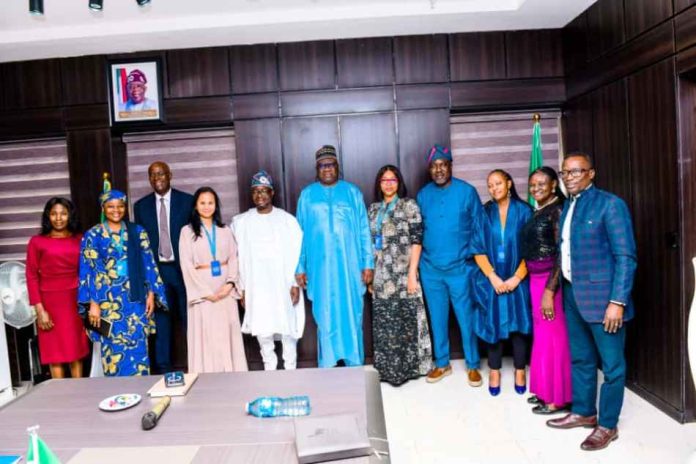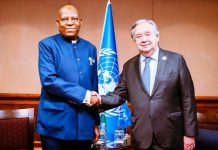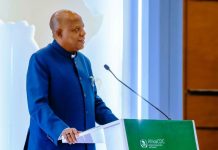The Honourable Minister of Humanitarian Affairs and Poverty Reduction, Dr. Bernard M. Doro, has reaffirmed the Federal Government’s commitment to deepening collaboration with the United Nations as Nigeria intensifies efforts to reduce poverty, strengthen humanitarian response systems and provide long-term, sustainable solutions for vulnerable populations.
Dr. Doro made this known during a courtesy visit by the United Nations delegation of the United Nations led by the UN Resident and Humanitarian Coordinator, Mr. Mohammed Malick Fall, at the Minister’s Conference Room, Federal Secretariat, Abuja.
Dr. Doro expressed appreciation to the UN team for their continued solidarity, noting that the current administration under President Bola Ahmed Tinubu, GCFR, has embarked on bold but necessary economic reforms designed to stabilize the nation’s economy and protect the most vulnerable citizens.
According to the Minister, some major reforms come with side effects, but the long-term benefits for National stability and development outweigh the temporary difficulties.
“The statistics may be daunting, but with strong partnerships, we can reduce poverty and build a more resilient society. Poverty may not be entirely erased, but we can drastically reduce it by empowering Nigerians to become self-reliant through a structured, long-term empowerment process.”
The Hon. Minister revealed that the Ministry is developing a flagship poverty reduction programme built on skills development, mentoring, provision of start-up capital and continuous evaluation to ensure lasting impact.
He reiterated that humanitarian challenges arising from conflict, natural disasters and climate shocks require coordinated action and sustained collaboration with the UN system.
“We must shift from short-term reactions to long-term, sustainable strategies. If we tackle poverty, we will reduce conflict, and when we reduce conflict, we reduce humanitarian crises,” the Minister added.
The Minister reaffirmed that the Renewed Hope Agenda places high priority on reducing poverty, supporting vulnerable groups, responding to crises and restoring dignity to affected Nigerians.
In his remarks, the UN Humanitarian Coordinator, Mr. Mohammed Malick Fall, congratulated the Honourable Minister for his appointment at a critical time, noting that the humanitarian landscape in Nigeria has expanded significantly beyond the North-East to several parts of the country due to conflict, insecurity and climate-induced disasters.
Mr. Fall stated that over 3.5 million Nigerians are currently displaced due to conflict and climate shocks, while millions more face acute humanitarian needs.
He noted that despite rising needs, global funding for humanitarian assistance has declined sharply, calling for a new model in which Nigeria strengthens national responsibility and leadership in humanitarian response.
He stated that,
“Nigeria is a country the entire continent looks up to. At a time when global crises compete for attention and resources, it is necessary for Nigeria to take greater ownership in driving humanitarian and development responses. “The UN has over 20 agencies and are committed to walking this journey with you.”
Mr. Fall emphasized the importance of transitioning leadership from international actors to Nigerian institutions, local organizations and government systems, stressing that localization will ensure sustainability and efficiency in humanitarian operations.
He recalled ongoing discussions with the Federal Government on establishing a National Council for Humanitarian Affairs, which will enhance coordination and strengthen Nigeria’s ability to lead humanitarian interventions in the future.
The UN assured the Ministry of its unwavering support as the country works to strengthen systems, empower communities and reduce humanitarian pressures driven by poverty, conflict and climate change.
Both parties agreed on the need for innovative, inclusive and sustainable solutions that combine humanitarian assistance with long-term development strategies.
The meeting was attended by the Permanent Secretary of the Ministry, Dr. Yakubu Adam Kofarmata, Directors of the Ministry and UN delegates.
Signed
Iliya Rhoda Ishaku
Director, Information & Public Relations






